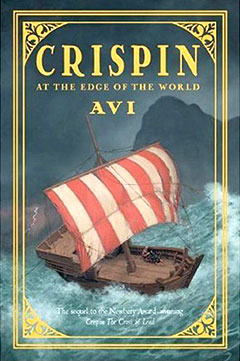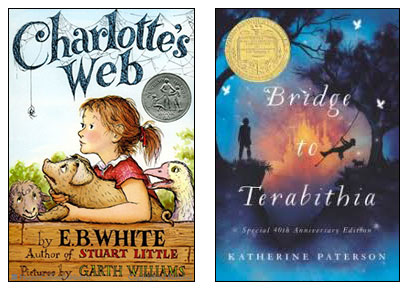 I recently received a letter from a young fan concerning my Crispin books. The writer informed me that when he read the second book in the series (At the Edge of the World), he “fell in love” with the character Troth. Then, when he turned to the third book, and realized Troth was not part of the story, he was heartbroken.
I recently received a letter from a young fan concerning my Crispin books. The writer informed me that when he read the second book in the series (At the Edge of the World), he “fell in love” with the character Troth. Then, when he turned to the third book, and realized Troth was not part of the story, he was heartbroken.
He asked me to rewrite that book and put Troth into it.
A number of years ago, another reader wrote to me about my book Lord Kirkle’s Money, concerning the character Mr. Drabble. In the course of the story (near the end) Mr. Drabble dies in a fire. My reader was distraught that this was the fate of her favorite. She was so furious with me, she swore (at great length) that she would never read another of my books, and promised to tell her friends to avoid my writing.
I wrote back to her to suggest that as in life, characters sometimes do die, and offered a few famous examples, Charlotte from Charlotte’s Web, Leslie from Bridge to Terabithia, and so on. Never received an answer.

Over the years I have received other such letters regarding other characters in other books,
One of the joys of writing for young people is that they often fully engage with your story and characters. They do so to the point that the characters become real, but then again not so real that they forget it was me who invented the characters—hence they complain to me. I’m sure many other writers get letters asking—at the close of the book—“But what happened next?” I suspect this is why series books are popular—there is an afterlife.
It’s one of the curious contradictions about fiction: The better written it is, the less like fiction it feels. The writer must—I know I do—struggle to create that reality. The manipulation of the text is to hide manipulation. The art is to make the art invisible.
That said, we often think of children’s literature in terms of who writes what, and how well the author has written. But sometimes I think what makes the field unique is how young readers respond to story and characters, and how deeply they feel about what transpires in a tale.
I, for one, love that.
11 thoughts on “When Characters Die”
You know you’re a true artist with a pen when your loyal fans mourn the loss of your characters.
Q and A: What influence (if any) does Roald Dahl have on your writing/ books?
None.
Any update on this old blog post? https://www.avi-writer.com/blog/2013/05/unpublished/
I would love to read that “scary” book that is described in that post — it sounds fascinating. I hope we get to read it someday.
Goodness!. That post was written years ago. Never published. And the editor mentioned in the comment –alas–died. I’m not sure I can find the manuscript, it being on one of those old hard disks.
Please try and find the manuscript or try to recreate it if you can I would really love to read it. It sounds like a fascinating book. Thank you.
Please try and find or recreate the manuscript. I think it would be a fascinating book. Thank you.
Any chance we’ll hear from Avon and Edward again? I read those to my kids when they were young and they laughed & giggled their way through them. When I first started writing, to learn more, I grabbed “A Beginning, A Muddle, and An End” as the subtitle was “The Right Way to Write Writing”. All the best to you…
Glad you and your kids enjoyed Avon and Edward. A sequel? As Edward might say, I don’t see a quill in my hand for that,
Understood. Sometimes it’s best to leave the good stuff alone…